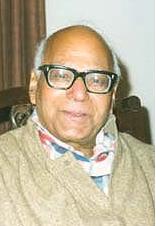A Quote by Rebecca Solnit
I often think that the reason capitalism hasn't completely destroyed everything is that a huge amount of anti-capitalist endeavor goes on, from labors of love, nurture, friendship, and barter to gift economies and different kinds of exchanges, not just one alternate model but a whole host of other ways in which we engage with each other and with the world that aren't financial and debt-based.
Quote Topics
Alternate
Amount
Anti
Barter
Based
Capitalism
Capitalist
Debt
Destroyed
Different
Different Kind
Different Kinds
Each
Economies
Endeavor
Engage
Everything
Exchanges
Financial
Friendship
Gift
Goes
Goes On
Host
Huge
Huge Amount
Just
Just One
Kinds
Love
Model
Nurture
Often
Other
Reason
Think
Ways
Which
Whole
World
Related Quotes
The other Dons in the room applauded and rose to shake hands with everybody in sight and to congratulate Don Corleone and Don Tattaglia on their new friendship. It was not perhaps the warmest friendship in the world, they would not send each other Christmas gift greetings, but they would not murder each other. That was friendship enough in this world, all that was needed.
There are all kinds of ways in which women, together, change the world. And I don't mean that in a cheesy way. I'm not somebody who believes all women should support each other. I believe very strongly in women critiquing each other, just not critiquing each other more intensely because they're women.
There's love and there's romantic love. The Greeks had different words for different kinds of love. And we just got "love." I don't know what you would call the other kinds - maybe brotherly love, Christian love, the love of Saint Francis, love of everyone and everything. Then there's romantic love, which, by and large, is a pain in the ass, a kind of trauma.
In some ways, the great danger for this commodified universe is our boredom with it ... There is this sort of dialectic that you could tease out, that even in this overdeveloped late-capitalist world, that boredom was still this kind of critical energy that you could work on and try to theorize and then act on, to find other kinds of belonging, other kinds of desire, other kinds of life.
Indian spirituality, proclaimed that the true Godhead was beyond number and count; that it had many manifestations which did not exclude or repel each other but included each other, and went together in friendship; that it was approached in different ways and through many symbols; that it resided in the hearts of its devotees. Here there were no chosen people, no exclusive prophethoods, no privileged churches and fraternities and ummas. The message was subversive of all religions based on exclusive claims.
I'm a huge proponent of exchanges, student exchanges, cultural exchanges, university exchanges. We talk a lot about public diplomacy, .. It's extremely important that we get our message out, but it's also the case that we should not have a monologue with other people. It has to be a conversation, and you can't do that without exchanges and openness.
We all owe everyone for everything that happens in our lives. But it's not owing like a debt to one person--it's really that we owe everyone for everything. Our whole lives can change in an instant--so each person that keeps that from happening, no matter how small a role they play, is also responsible for all of it. Just by giving friendship and love, you keep the people around you from giving up--and each expression of friendship or love may be the one that makes all the difference.
I see myself, in terms of the question of capitalism, as I would support democratic socialism over a capitalist system, because any approach... or participatory economics, which is another great model that people like Michael Albert are putting out there... any system that encourages us to think about interdependency, and to be able to use the world's resources in a wiser way, for the good of the whole, would be better for the world than capitalism.
Capitalism is based on the principle that everything has to be privately owned; it can't be held in common. There is even a dogma, which is today called, the "tragedy of the commons" which holds that if things are held in common they are going to be destroyed. If they're privatized, like you give them to Bechtel or Monsanto or ExxonMobil, then they'll be preserved because that's the capitalist's religion.
Let us build a structure of peace in the world in which the weak are as safe as the strong ? in which each respects the right of the other to live by a different system ? in which those who would influence others will do so by the strength of their ideas, and not by the force of their arms. Let us accept that high responsibility not as a burden, but gladly ? gladly because the chance to build such a peace is the noblest endeavor in which a nation can engage.
One of the problems with traditional anti-capitalist thought is that it defines capitalism as a totality, which encourages us to imagine another totality, socialism, which we can try to replace it with. This totalizing perspective has colonized the imagination of anti-capitalism and left us waiting for a revolution we can never have.
Others who openly discuss matters of spirituality often ignore the warning signs. They are so in love with each other, enjoy being with each other, and can see themselves making each other happy for the rest of their lives, and they close their eyes to huge differences in their views of spirituality.




































